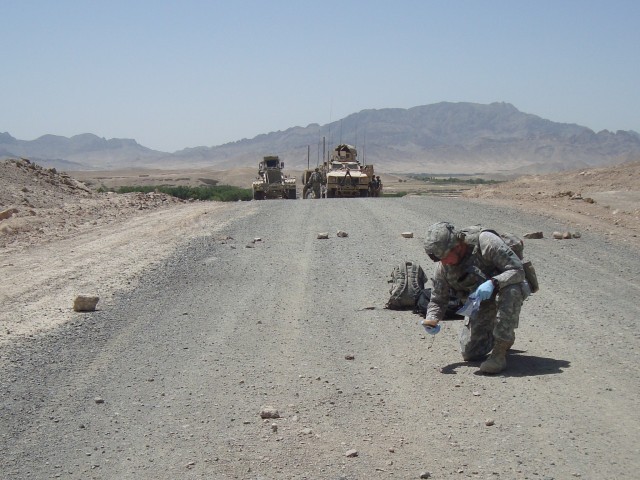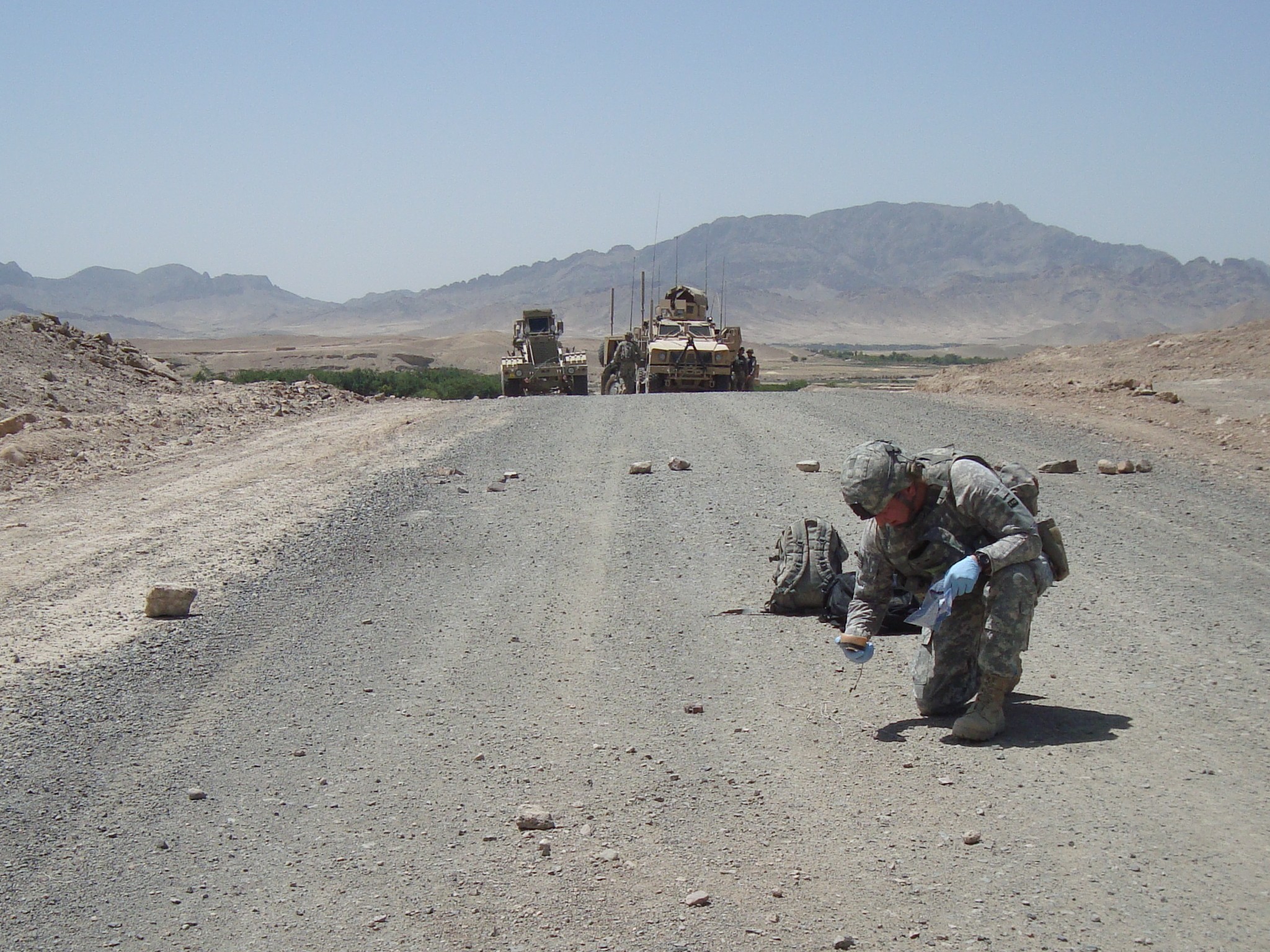
FORT LEAVENWORTH, Kan. (Nov. 24, 2010) - Paul Salavitch said he got funny looks from deployed Soldiers in Afghanistan when he told them his "unit" was U.S. Army Garrison Fort Leavenworth.
Salavitch, installation physical security officer for the Directorate of Emergency Services, participated in a Civilian Expeditionary Workforce deployment to Afghanistan from October 2009 to July 2010. Salavitch, a retired master sergeant who will turn 50 this year, wore ACUs, carried an M-4 carbine and went on 65 combat missions while deployed as a tactical exploitation technician.
His counter-improvised explosive device team is not only credited with keeping the war zone safe for Soldiers. The team worked under enemy fire for three hours to recover the bodies of two Soldiers who were eventually brought home to the United States to be buried.
"I wanted to help Soldiers take care of Soldiers one more time," he said. "They said I had a skill set they were looking for, so I suited up one more time."
Salavitch received the Joint Civilian Service Commendation Award and the Secretary of Defense Medal for the Global War on Terrorism at the Fort Leavenworth Garrison all-hands meeting Nov. 19.
Salavitch volunteered to serve on the expeditionary force as a civilian.
"As DA civilians, we are a force multiplier in many respects," he said. "This is just one way we can help our commanders and take care of Soldiers."
During his 23 years of active duty, Salavitch had experience as a military police Soldier and deployed to Kosovo and the Balkans.
As a member of the Civilian Expeditionary Workforce, Salavitch served on the Counter-IED Team 19 at Forward Operating Base Frontenac. The team's purpose was to go out with infantry units and assist them in detecting IEDs. According to the narrative of Salavich's award, many of his combat missions were in Kandahar and Uruzgan Provinces, which included the Taliban stronghold of the Baghtu Valley.
"Mr. Salavitch excelled while conducting combat operations in support of the 5th Stryker Brigade, 2nd Infantry Division, in southern Afghanistan," the narrative read. "His devotion to duty was critical to the successful execution of Central Command's Counter-Insurgency operations, securing freedom of movement across 71,00 square kilometers of battle space, and safeguarding the lives of coalition forces and Afghan nationals in Regional Command-South."
Salavitch is a subject matter expert in metal detectors. Using a metal detector, Salavitch was able to find the switches for IEDs, which are usually metallic, he said. He also trained more than 320 Soldiers on how to use them to identify IEDs.
Salavitch is particularly proud of his team for helping to recover the bodies of two American Soldiers on Nov. 6, 2009.
The narrative reads that Salavitch was responding to a catastrophic IED strike on a Stryker combat vehicle in the Arghanab Valley.
"After arriving on scene, he began a post-blast investigation of the crater and surrounding area," the narrative read. "While inside the crater, there was an attack on the C-IED and EOD teams with small arms fire. Despite continuous gunfire, Mr. Salavitch remained in and around the blast seat for over three hours recovering human remains and gathering evidence. His selfless actions under fire were vital to the expedient and complete recovery of two Soldiers killed by the IED strike."
"Our team never quit that day," Salavitch said. "Staying in that was hard, but we stayed there. It's kind of a warrior ethos that you never leave a man behind."
Salavitch's wife of 24 years, Sheri, and three grown children, Allyson, Ashley and Christopher, supported him during his deployment. Salavitch said it wasn't easy at first for his family, who thought their dad left combat deployments behind when he retired in 2004.
"I got my team home alive, we made a difference over there, and we're proud of that," Salavitch said.

Social Sharing